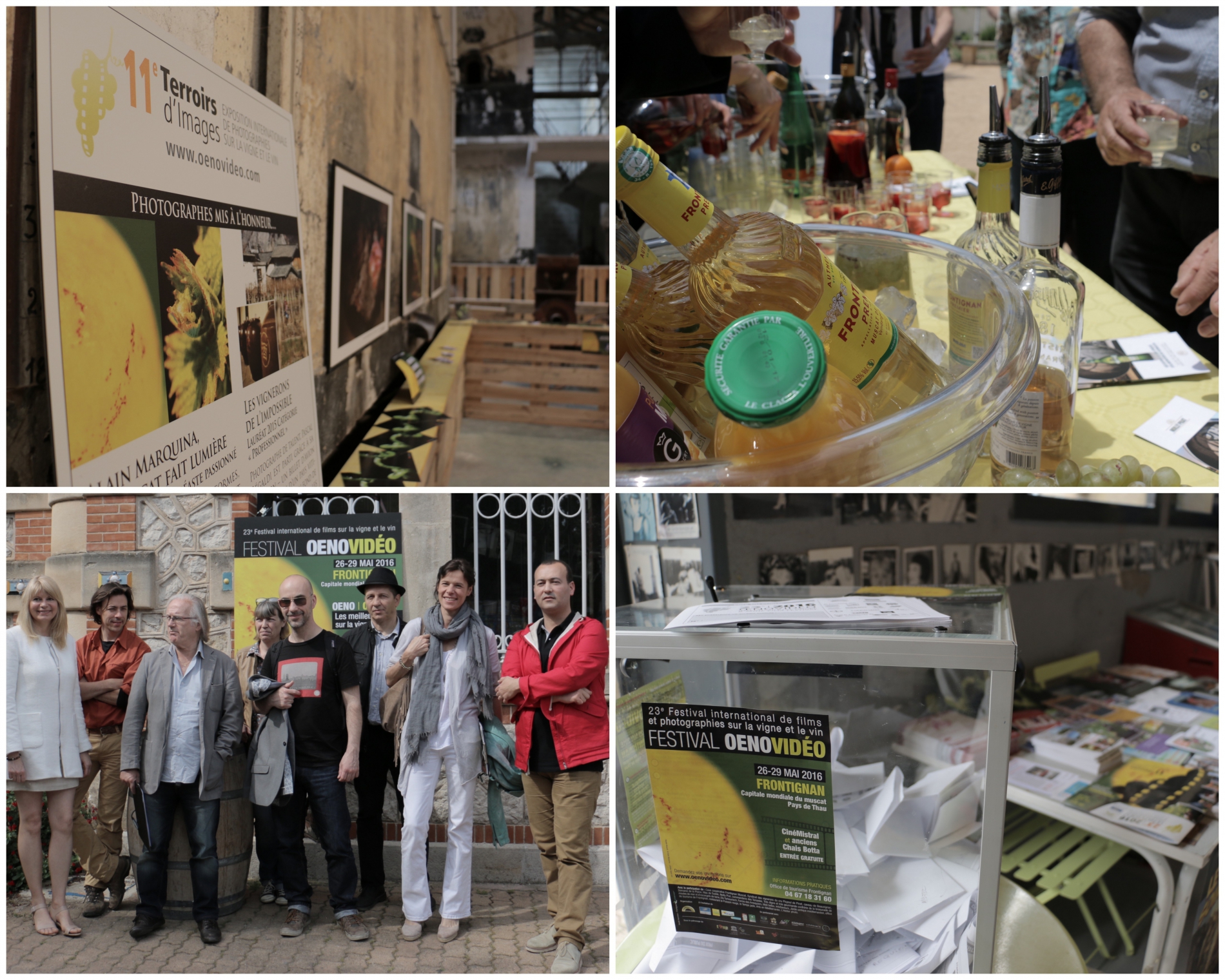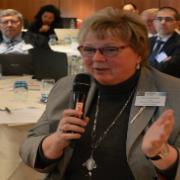
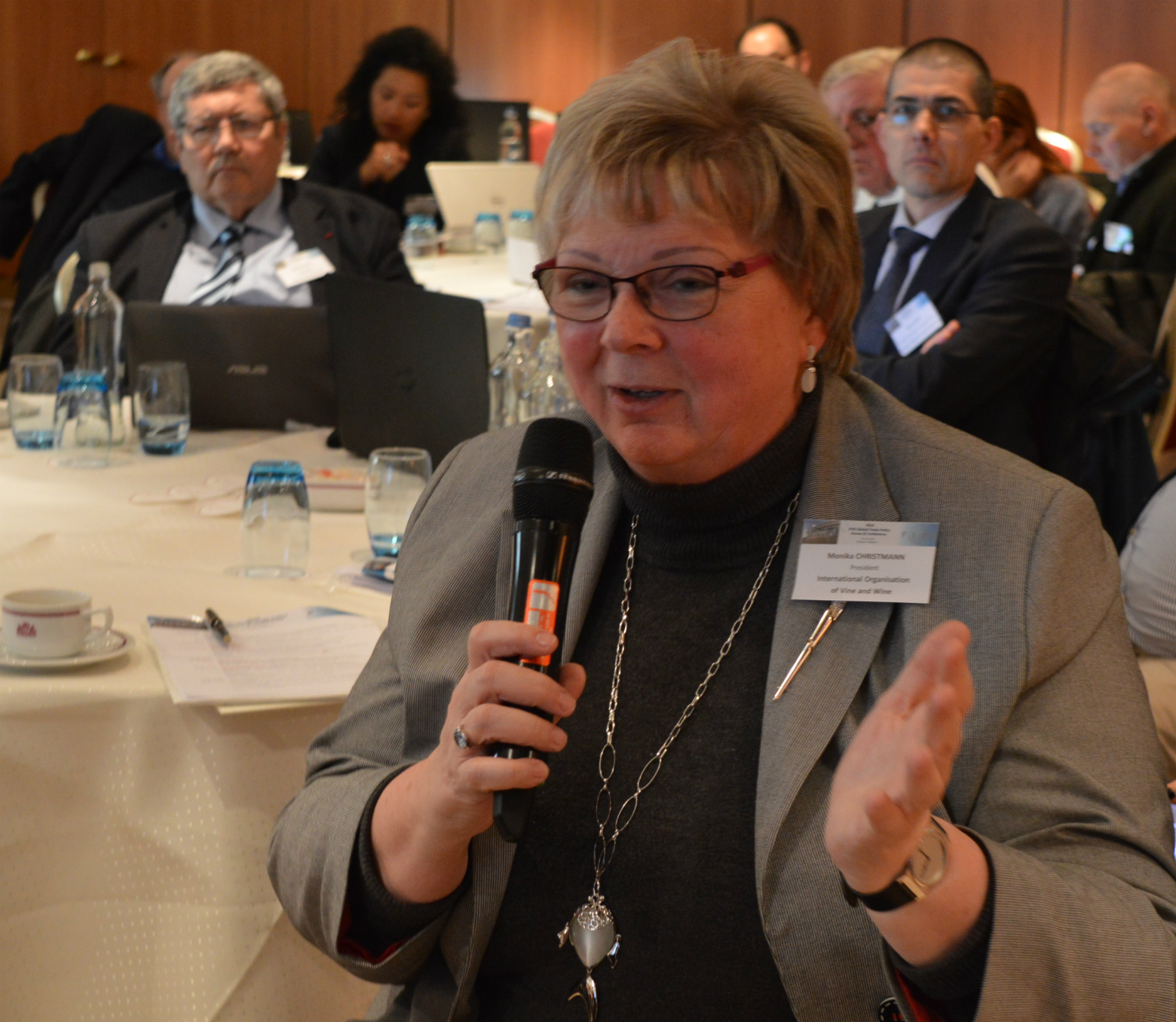
Environmental sustainability, social responsibility, trade facilitation and consumer matters were the topics covered in the three-day conference, with attendance from six of the seven continents and all segments of the alcohol beverage industry.
The FIVS Spring Conference was held at the Royal Windsor Hotel and policy-oriented discussions were led by representatives from Argentina, Australia, Chile, the European Commission, the International Organisation of Vine and Wine (OIV), New Zealand, South Africa and the United States of America.
At the conference Prof. Christmann informed the participants about “OIV Activities in the Area of Sustainability & Future Directions”. She explained the work of the new OIV Expert group ENVIRO to representatives coming from OIV-Member States but also Non-member States.
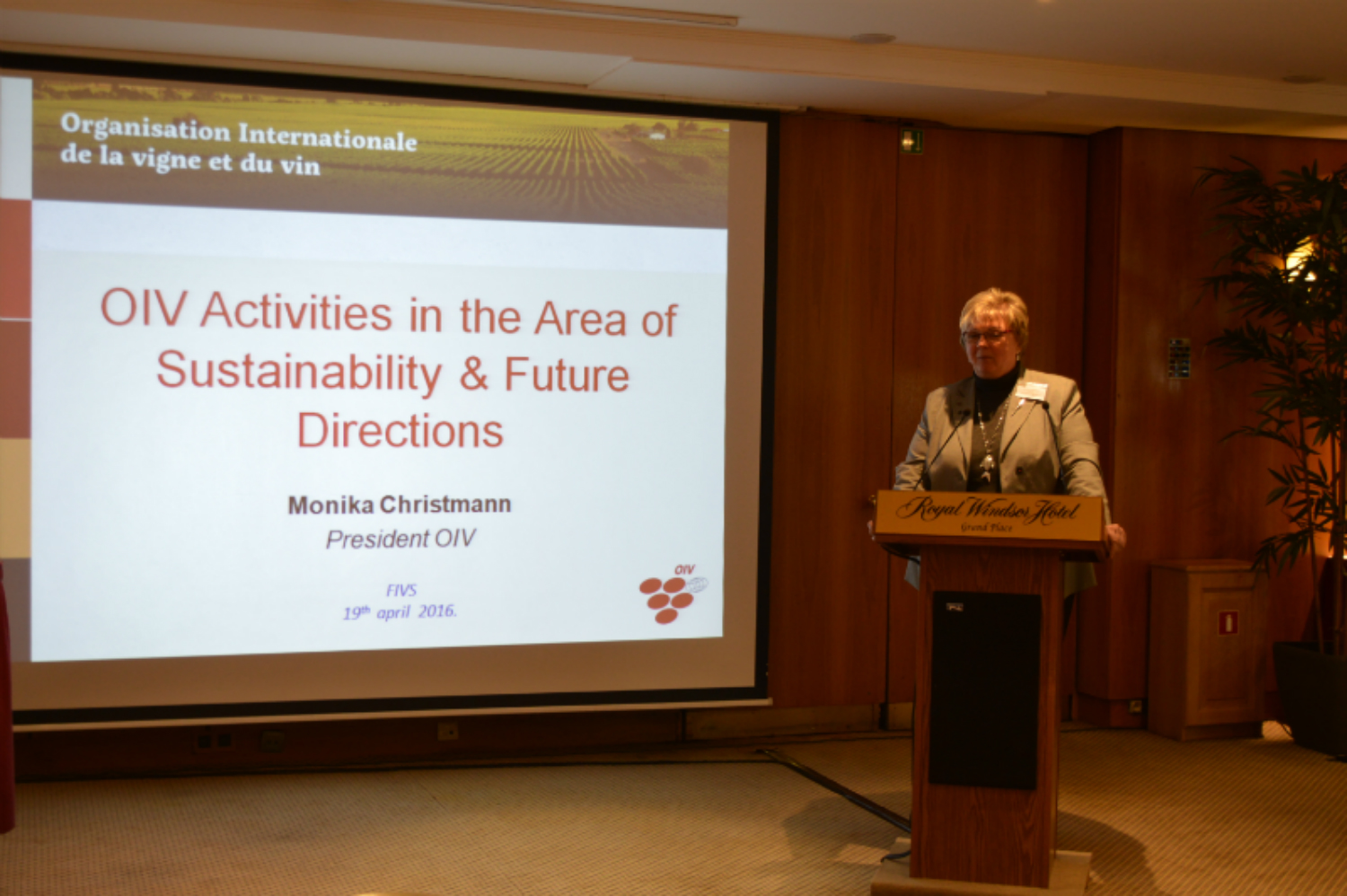
FIVS Members elected Ignacio Sánchez Recarte, Secretary General, Comité Européen des Entreprises Vins, as a new Vice-President of the Federation at its 71st General Assembly.
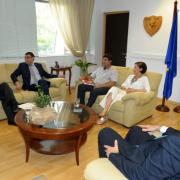
Jean-Marie Aurand took part in the ninth Cyprus Wine Competition as President of the tasting jury. This competition, placed under the patronage of the OIV, was very well organised and brought together 132 greatly diverse, good-quality wines.
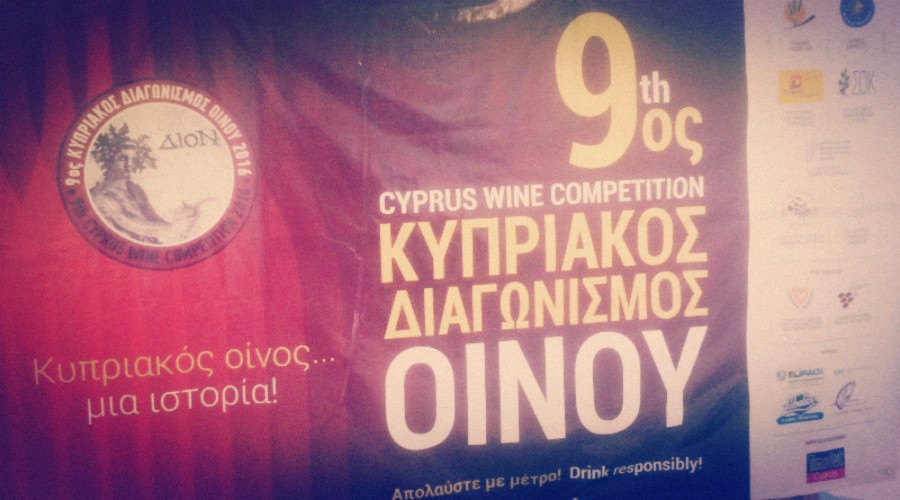
During a meeting with Minister for Agriculture Mr Nicolaos Kouyalis, the Director General emphasised the good collaboration that already exists with the teams of the Department of Agriculture and more specifically the Cypriot Viticulture and Oenology Section. He also expressed the desire for even stronger involvement of the experts in the work of the Organisation. The Minister responded favourably to this proposal, insisting on the interest of an active presence at the OIV for Cyprus.
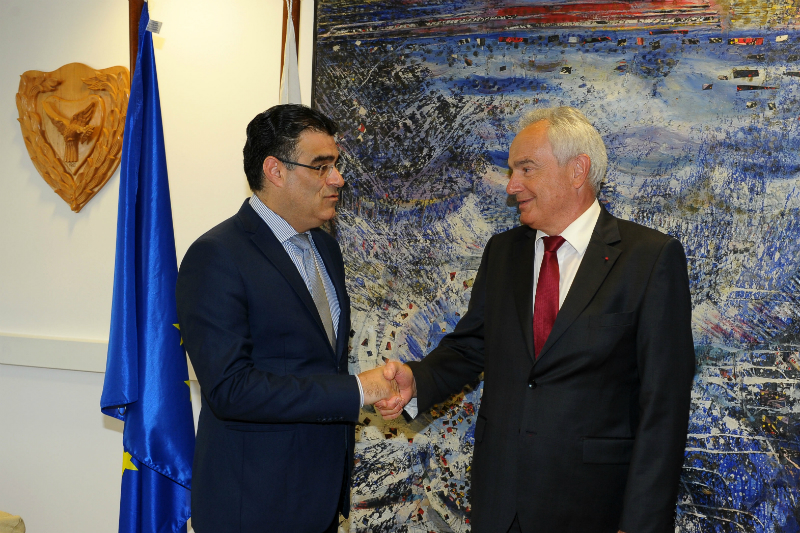
A decision was made to hold a presentation of Cypriot wines at the OIV headquarters in the near future.
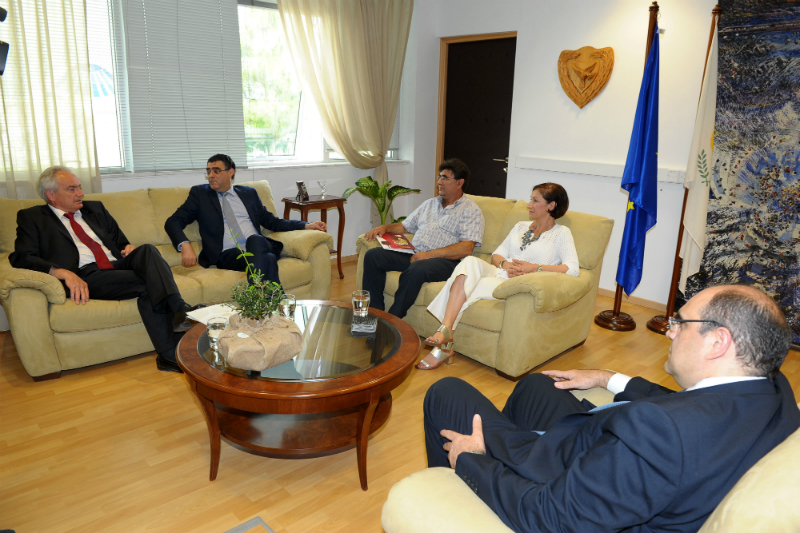
The cultivation of vines in Cyprus – which dates back over 6000 years – is part of the country's history.
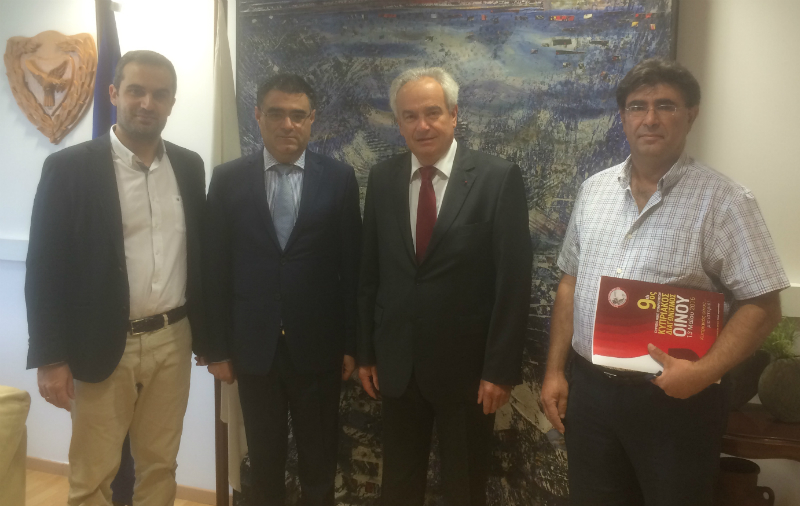
The country enjoys a number of advantages that will enable it to develop its vitivinicultural sector and add value to its wines, including promising local varieties (Xynisteri, Maratheftiko, etc.), a growing domestic market driven by tourism and an absence of Phylloxera.
Wine production is currently fluctuating at around 10,000 hl per year for an area under vines of approximately 7000 ha.
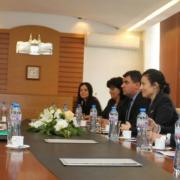
Ms Taneva affirmed the strong support of the Bulgarian government and its Ministry in the organisation of the Congress. The event will showcase the revival of Bulgarian vitiviniculture, which has seen a significant transformation in recent years.
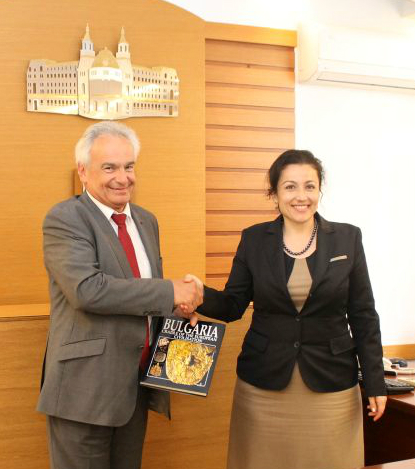
The OIV Director General underlined the unanimous agreement of the OIV Member States to taking Bulgaria up on its invitation, 50 years after the last OIV General Assembly held in Sofia in 1966. Together with Ms Vesselina Evdokimova, Attaché for Agriculture and Food at the Embassy of Bulgaria in Paris, and with Mr Krasimir Koev, Director of the Executive Agency for Vine and Wine, Jean-Marie Aurand participated in working meetings to initiate the first logistical steps and visit the locations that will host the experts and delegates who will be taking part in the 40th OIV Congress.
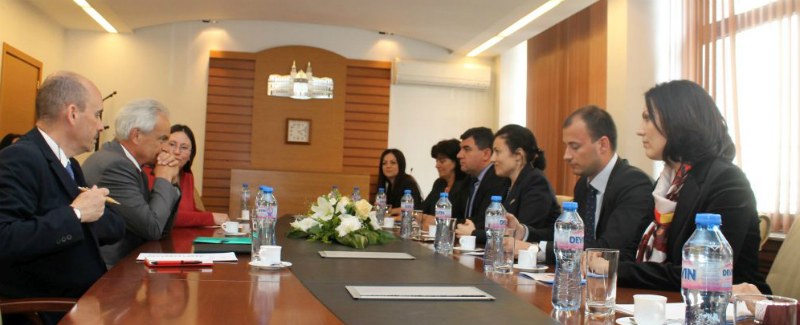
The Director General praised the strong direct involvement of the Agency and its collaborators, and expressed his conviction that all of the conditions necessary to make this annual summit of the global vitivinicultural sector a success would be met.
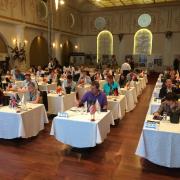
This initiative, respected by many international judges, has allowed for the discovery of an important wine region and the contribution to the promotion of the image and culture of Romanian wines.
Jean-Claude Ruf, the official OIV delegate at this competition that was placed under the patronage of the Organisation, praised the rapid development of the event, which brought together almost 1500 wines this year – 30% more than the last one. A total of 36 countries were represented. This contest thus sees its success confirmed year after year.
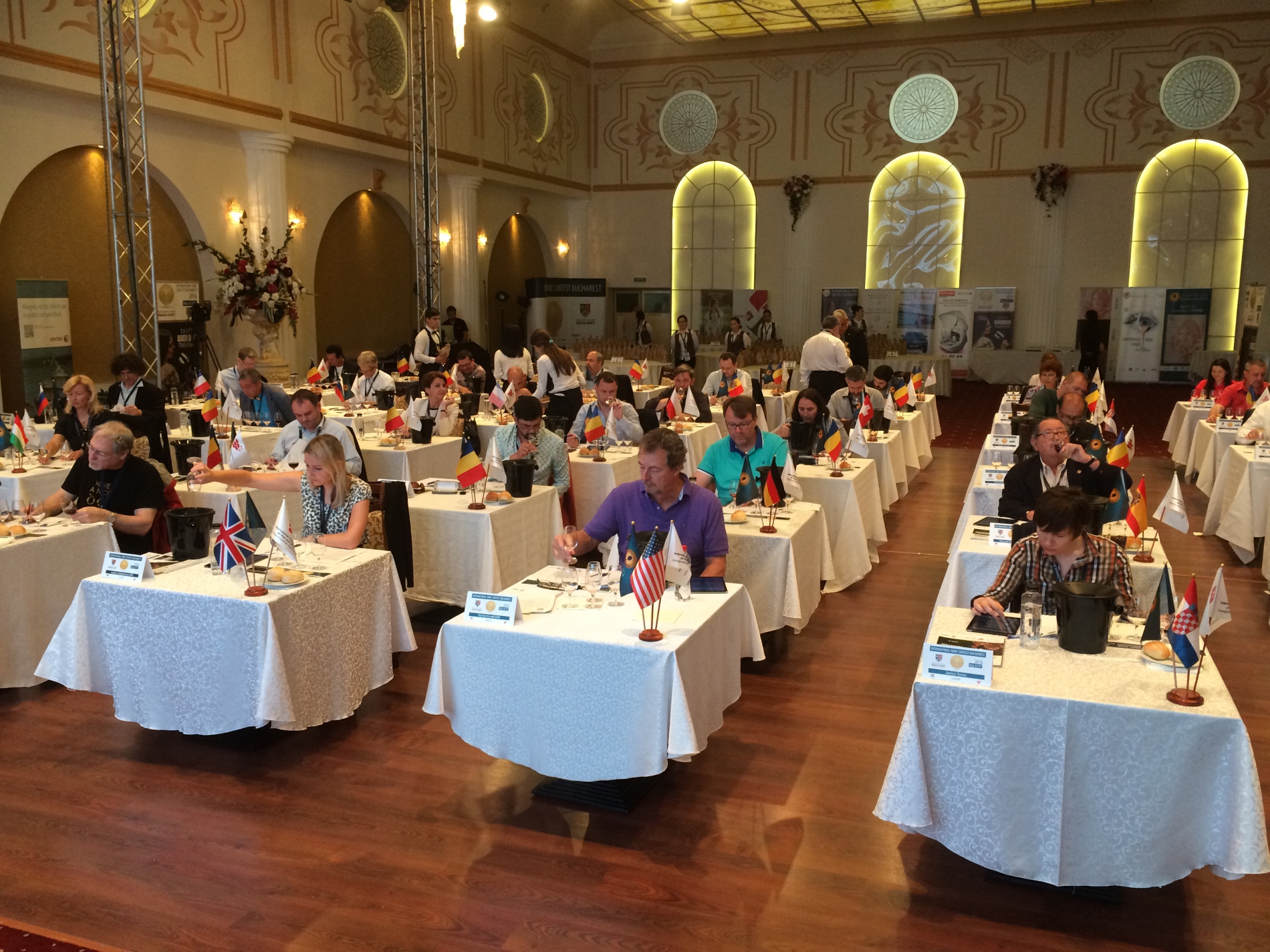
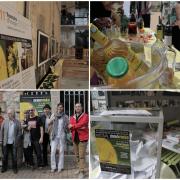
Out of 28 officially selected films and a total of 15 hours of screening, the 2016 Oenovideo Grand Prix was awarded to the Canadian film "Au pif" from Pimiento inc., produced by Bachir Bensaddek y Orlando Arriagada. This is a documentary on the world of sommellerie seen through the eyes of the Québécoise sommelier Véronique Rivest.
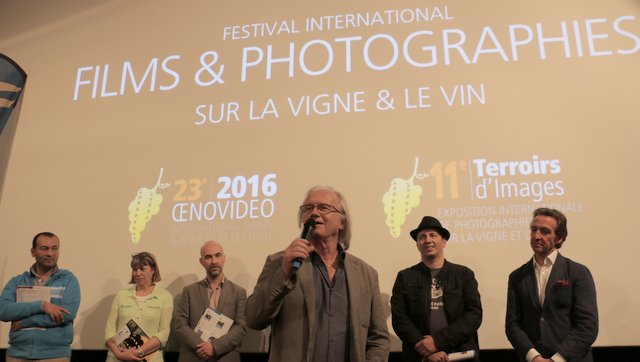
In total, including the selections of the Grand Jury, the public and the partner judges, 14 films received awards. Consult the 2016 list of award winners.
Under the theme "Le printemps des vignes : le retour de la vie !" ("Springtime for vines: coming back to life!"), the 11thTerroir d'Images exhibition was held at the same time. Out of over 1500 works by amateur photographers and professionals from 12 competing countries, 110 photographs were officially selected.
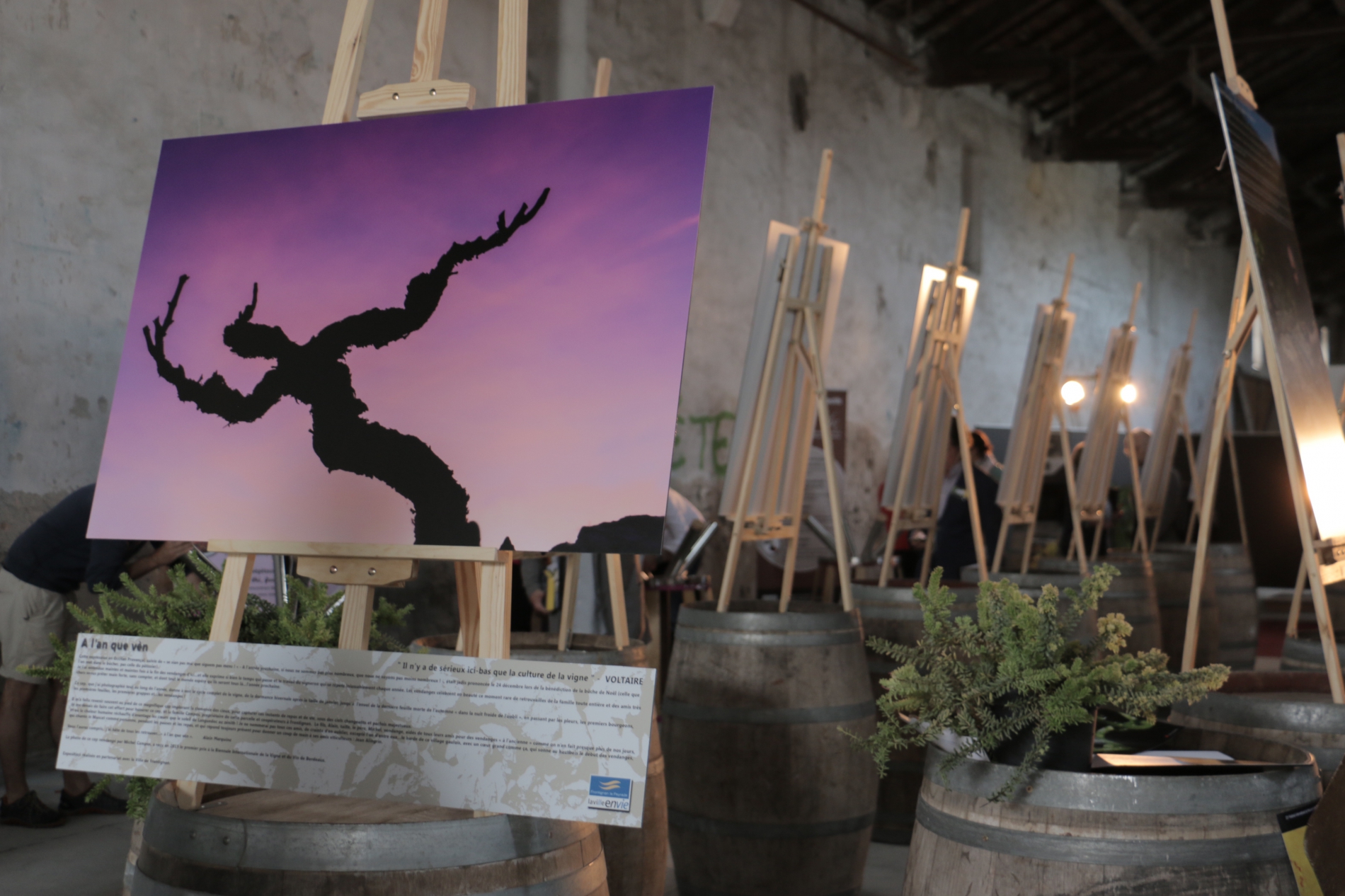
The official award ceremony will take place on Wednesday 14 September 2016 at the Palais du Luxembourg in Paris. At this time, the best photographers of the Terroirs d'images exhibition will also be recognised and presented with awards.
A première in Hérault
Nestled between sea and scrubland at the edge of the Thau lake, Frontignan was the first town in Hérault to host Oenovideo, an itinerant festival since its beginnings. It was also an opportunity to celebrate the 80th anniversary of the Muscat de Frontignan appellation. Between each screening, attendees were able to awaken their senses in the land of Muscat and engage in discussions with regional wine producers and film directors.
